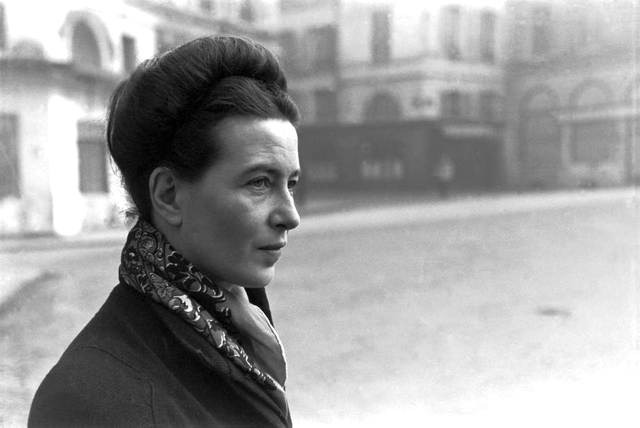The Second Sex

Now my particular interest is philosophy. One of my favourite existentialist and atheist is, Simone De Beauvoir.
Her book The Second Sex, was published in 1949, however was considered controversy, critics thought of it as “pornography” and the Vatican put it under the index of forbidden books.
In the text, Simone De Beauvoir expresses the focal point of: What is a woman? Well, according to Beauvoir, she addresses the importance of how women are perceived as negative whilst men are positive and “gender neutral.” So, automatically taking into consideration of her title as “The Second Sex,” gives us the insight of how humanity is divided into two classes of individuals. All the constructions that are voiced out are simply based on assumption rather than fact. For example, she states how it is extremely frustrating to hear a man say, “You think this and so because you are a woman.” Whereas her defence would be, “I think this and so because it is true.” With that being said, these constructions are mostly from a male’s perspective and arguably we as women can say, they don’t know what it is like to be a woman. It is noted that men are considered “normal” and women are considered an “imperfect man” according to St. Thomas. When Simone De Beauvoir defines the difference between the other and the self, you can already presume the bias. Women is “the sex,” “the other,” she is the sex object. Men are superior and controlling. Now, when you hear these things out loud, I for instance, get all uncomfortable. Reason being, Beauvoir really untangles the difference between assumption and reality. As an existentialist, in this case, Beauvoir takes advantage of her freedom of voice. For example, in a man and woman relationship, reciprocity is indefinite towards understanding one another’s freedom.
Sartre her beloved companion, believed in making decisions about freedom all in “good faith.” This represents the self, in knowing what decisions you make. However, the decisions you make whether out of good faith or bad faith does not mirror who you are. The irony of the matter is however, Simone addresses how self and other was not meant for division of sexes, it was simply a form of duality like, God and Lucifer.
One quote that resonated with me was, “one is not born, but rather becomes, a woman.” To elaborate, a woman simply learns how to act, how to talk, how to “walk the walk.” They are taught how to be the second sex.
As George Herbert Mead would say, the self emerges through observing others and social interactions, just like how women are observing how to develop into the “proper woman.”
“Self-conquest is the greatest of victories.” This quote said by Plato, has the significant effect on how Beauvoir has self-belief. She is confident, and has a strong moral conscience in the sense of using her authentic voice. She is showing us how you can overcome the obstacles, in this case as a woman, which society faces us with. We can reach to the highest satisfaction of placing these gender based phenomenon in front of people, especially men, to grasp on to our view.
Now I leave you with this: any thoughts? Suggestions? Are you for or against?
Hey there, interesting post. :) However I am having trouble to understand a particular sentence.
The way I understand it is: We, especially men, like to keep calling the social construct of what a woman/man is supposed to be a fact in order to justify and cling on to our views. Is that what you are trying to say?
Disclaimer: Non-native speaker here, I may be completely off on that interpretation, so please don't read into it. ;)